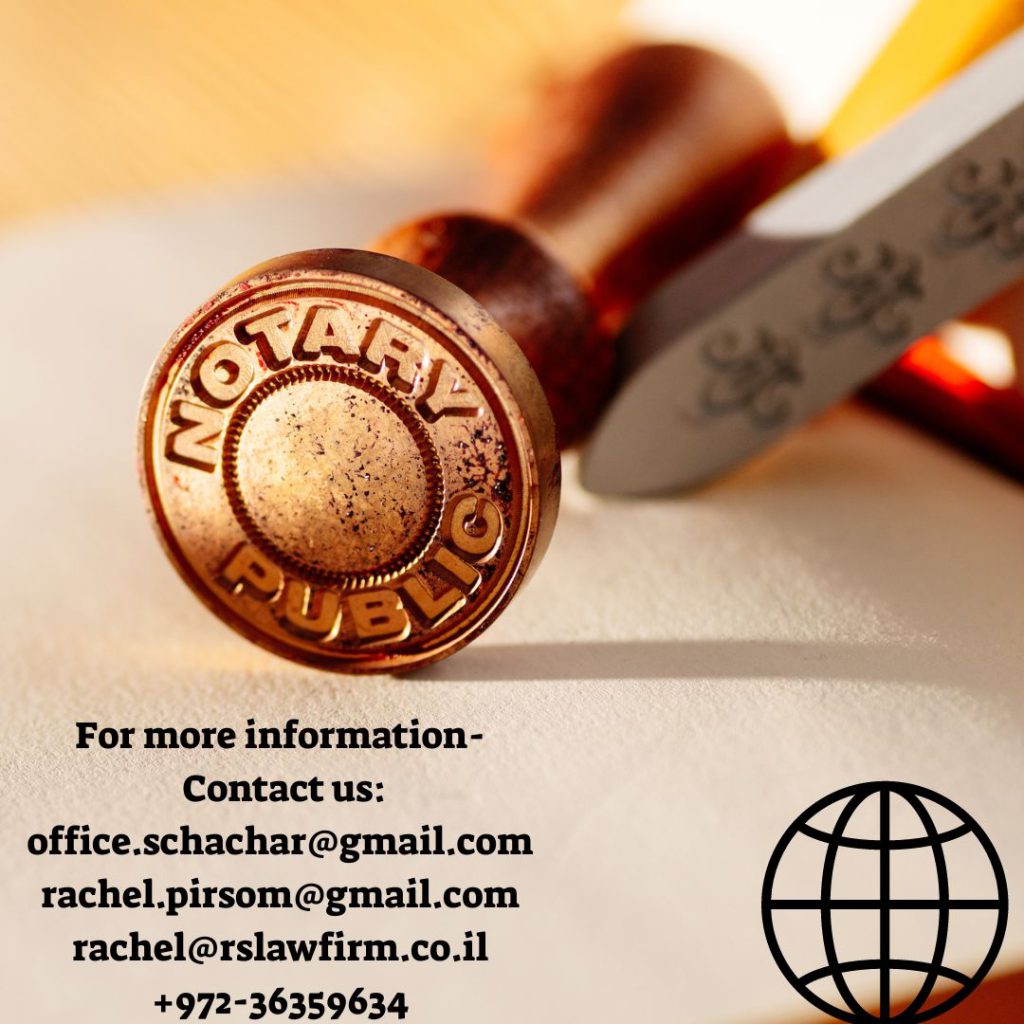Studying abroad has become an integral part of the academic journey for many individuals. Whether driven by the pursuit of specialized fields or broader educational experiences, students often find themselves seeking opportunities overseas. In today’s interconnected world, this global academic exploration is more accessible than ever. However, it comes with certain prerequisites, one of which is the translation and notary signature of degree certificates. In this article, we will explore the essential steps and significance of this process in facilitating academic mobility.

| Topic | Summary |
| Motivation for Studying Abroad | Pursuit of specialized fields, academic experiences, and exposure to diverse cultures. |
| Fields of Study Abroad | Medicine, dentistry, veterinary medicine, design, business studies, and more. |
| Benefits of International Studies | Language acquisition, cultural exposure, specialization, and academic career prospects. |
Pursuing Higher Education Abroad: A Common Endeavor
The quest for higher education knows no boundaries. Certain professions, such as medicine, present formidable challenges for acceptance into Israeli institutions due to limited slots and rigorous admission criteria. Consequently, many future doctors in Israel embark on their educational journey abroad, eventually returning to complete their internships. This trend extends beyond medicine; various fields, from dentistry to veterinary medicine, design, business studies, and more, attract Israeli students to foreign institutions.
Advanced degrees, including postdoctoral studies, are often prerequisites for pursuing academic careers in Israel. For many aspiring academics, a period of study abroad becomes an essential part of their academic trajectory. Such international experiences offer exposure to diverse cultures, efficient language acquisition, and specialization tailored to one’s chosen career path, be it medicine, communication, game design, architecture, finance, or engineering.
Admission Requirements for Studying Abroad
To secure admission for graduate studies overseas, aspirants must fulfill certain prerequisites. These typically include passing standardized exams, which vary by country and field of study. Additionally, students must provide documentation attesting to their previous education in Israel, including their degree certificate and academic transcripts. Specific universities may impose additional requirements, such as providing parental financial documents to determine tuition fees or scholarship eligibility.
However, gaining admission is only the first step. Preparing for life in a foreign country with a distinct culture and language demands careful personal readiness. Language courses might be necessary to acquaint oneself with the local tongue. Beyond personal preparations, obtaining a student visa from the host country is essential. Depending on the destination, student visas may include work opportunities, ranging from limited employment within the university to open-ended work authorization during the study period.

| Topic | Summary |
| Standardized Exams | Typically required for admission, varies by country and field of study. |
| Documentation | Degree certificates and academic transcripts from Israel. |
| Additional Requirements | Vary by university and may include financial documents and language tests. |
Document Preparation for Presentation Abroad
Whether one intends to submit a degree certificate as a foundation for advanced studies or provide proof of residency to a foreign embassy during the student visa application process, these documents necessitate careful preparation before submission. This preparation encompasses notarized translation of the degree certificate and associated documents, along with notary confirmation—a vital element in the authentication process. Some notaries even prefer to undertake the translation themselves, adding an extra layer of verification.
A notarized translation lends legal validity to translated documents, confirming their accuracy and faithfulness to the original. To ensure international recognition and validity in another country, these translations must also bear an apostille stamp from a court, affirming that the notary is authorized by the State of Israel to both authenticate and translate documents and certificates. Notaries often provide the added convenience of affixing an apostille stamp in addition to offering translation services and notary endorsements on degree certificates and other essential documents.
Simplifying the Process: How to Obtain a Notarized Translation
Acquiring a notarized translation for a degree certificate is a pivotal step for individuals looking to use their academic qualifications abroad. The notarized translation process typically involves several critical steps, and it necessitates the services of a professional translation agency.

| Topic | Summary |
| Degree Certificate | Requires notarized translation for international recognition. |
| Notarization Process | Legal validity through translation and notary confirmation. |
| Apostille Stamp | May be required for international acceptance, depending on the country. |
Step 1: Select a Reputable Translation Agency
The initial phase in obtaining a notarized translation is identifying a reputable translation agency experienced in academic translations. This agency should have a track record of handling degree certificates and possess knowledge of the notarization process. Choosing an established agency familiar with the legal requirements in the destination country is imperative.
Step 2: Provide Degree Certificate Copy
Once a translation agency is selected, individuals must supply a copy of their degree certificate to the agency. A professional translator from the agency will be assigned to translate the document into the required target language. Accuracy in translation is paramount, ensuring that the translated certificate accurately mirrors the content of the original and maintains grammatical correctness.
Step 3: Notarization by a Licensed Notary
After the translation is completed, the document proceeds to be notarized by a licensed notary. This notary verifies both the identity of the translator and the precision of the translation. Their seal and signature are then affixed to the document. This step is indispensable, as it provides legal validation affirming the translation’s accuracy and completeness.
| Topic | Summary |
| Selecting Agency | Choose a reputable translation agency experienced in academic translations. |
| Providing Copy | Supply a copy of the degree certificate to the agency for translation. |
| Notarization | The translation is notarized by a licensed notary, adding legal validation. |
| Submission | Submit the notarized translation to relevant authorities for verification. |
Step 4: Submission to Relevant Authorities
Finally, the notarized translation can be submitted to the pertinent authorities, whether it’s a university or a government agency, for verification. The reviewing body will assess the document and may require supplementary steps, such as apostille certification or authentication, contingent on the country where the document will be employed.
The Importance of Professional Translation Services
Given the option, some individuals might contemplate translating their degree certificate themselves in an effort to save costs. However, several compelling reasons underscore the significance of opting for professional translation services:
1. Accuracy Assurance
Professional translators are well-versed in ensuring precise translations. They guarantee that all information is accurately and correctly translated. Their familiarity with academic terminology and language usage is crucial, especially when translating diplomas. Mistakes in translation can lead to complications, including delays in degree recognition or rejection of applications.

| Topic | Summary |
| Accuracy Assurance | Professional translators ensure precise and accurate translations. |
| Legal Requirements | Notarized translations must adhere to specific legal standards. |
| Time Efficiency | Professional services expedite the process, ensuring accuracy and timeliness. |
2. Adherence to Legal Requirements
In most instances, notarized translations serve legal purposes, such as job applications or studying abroad. These translations must conform to specific legal standards, which can differ depending on the destination country or institution. Professional translation services possess experience in meeting these requirements, assuring that your translation aligns with all necessary legal standards. Opting for professional services can save time, money, and alleviate the stress of ensuring that your translation complies with legal stipulations.
3. Time and Efficiency
Translating a degree certificate can be a time-consuming and daunting task, particularly for those not well-versed in the language or the subject matter. Professional translation services are equipped with the expertise and resources to expedite the translation process, ensuring both accuracy and timeliness. This can be especially crucial when time sensitivity is a factor, such as when a translation is required for job applications or visa submissions.
Conclusion: The Value of Notarized Degree Certificate Translation
In conclusion, obtaining a notarized translation for a degree certificate is a pivotal step for individuals seeking to use their academic qualifications in foreign countries. Such notarized translations provide an official and legally recognized version of the original document, ensuring its acceptance by institutions and authorities in the destination country. Moreover, notarized translations mitigate the risk of miscommunication and misinterpretation that can occur with unofficial translations.
Furthermore, notarized translations confer credibility upon the document, validating to potential employers, educational institutions, and licensing authorities that an individual’s qualifications are authentic and officially recognized. This carries particular weight in highly regulated professions like medicine, law, and engineering, where qualifications must adhere to precise standards for recognition.
While the process of obtaining a notarized translation may appear daunting, it represents a vital investment for individuals aiming to pursue careers or further their education abroad. Professional translation services can deliver an accurate and dependable translation that aligns with the legal and regulatory prerequisites of the destination country.
In closing, notarized translations of degree certificates are essential to preserve the accuracy and reliability of one’s academic achievements when seeking opportunities abroad. Receiving a professionally translated and notarized document upholds the integrity of one’s qualifications and eases the path to a successful transition.

| Topic | Summary |
| Official Recognition | Notarized translations provide an official and legally recognized version of the document. |
| Credibility | Notarized translations validate an individual’s qualifications, enhancing credibility. |
| Regulatory Compliance | Highly regulated professions benefit from translations meeting precise standards. |
Your Trusted Partner for Notarized Translations: Rachel Schachar Law & Notary Firm
I highly recommend Rachel Schachar Law & Notary Firm for all your notarized translation needs. With their wealth of experience and expertise in the field, this veteran firm has consistently delivered exceptional translation services in multiple languages and across various document types. Their commitment to precision and accuracy ensures that your documents will meet the highest standards, making them suitable for international use. Whether you require translations for personal documents, legal papers, or business agreements, Rachel Schachar Law & Notary Firm’s dedicated team will provide you with professional and reliable service. Trust in their proven track record and extensive knowledge in notarized translations, and you’ll find a dependable partner to assist you in navigating the complexities of global communication and documentation.




